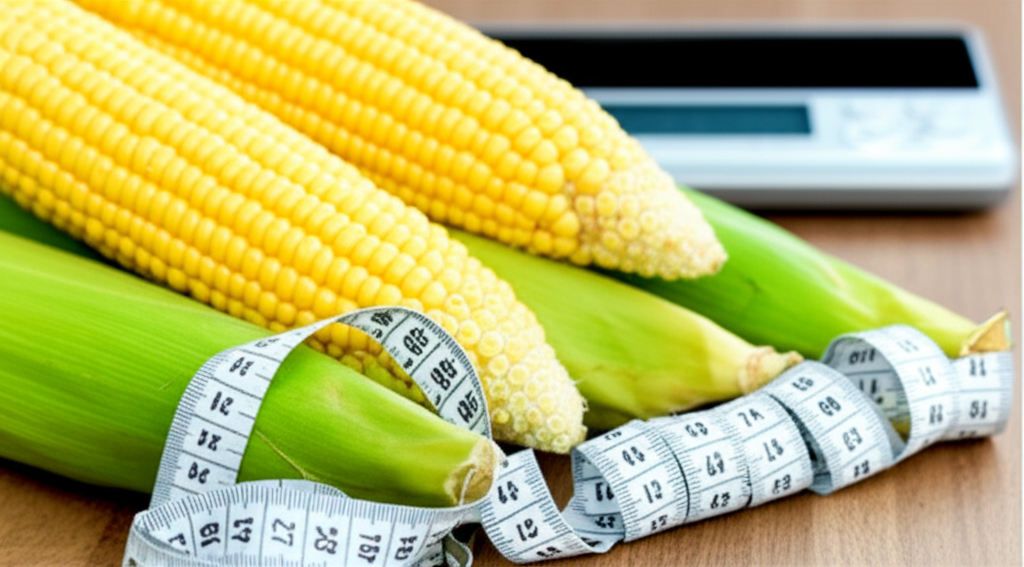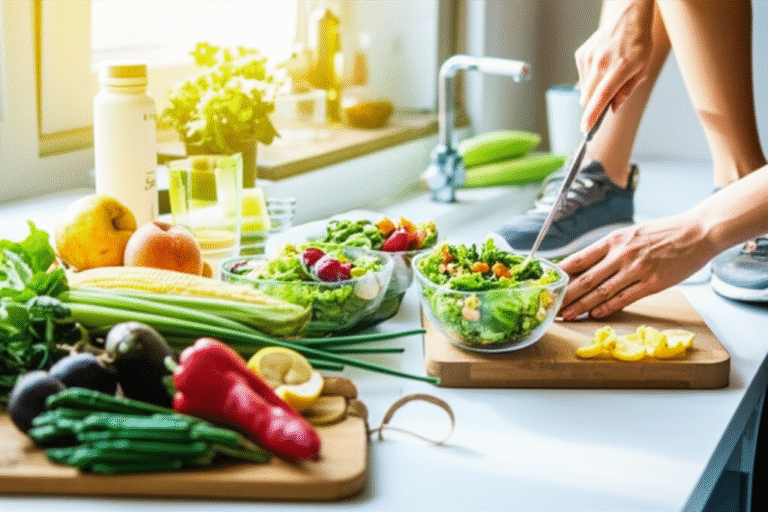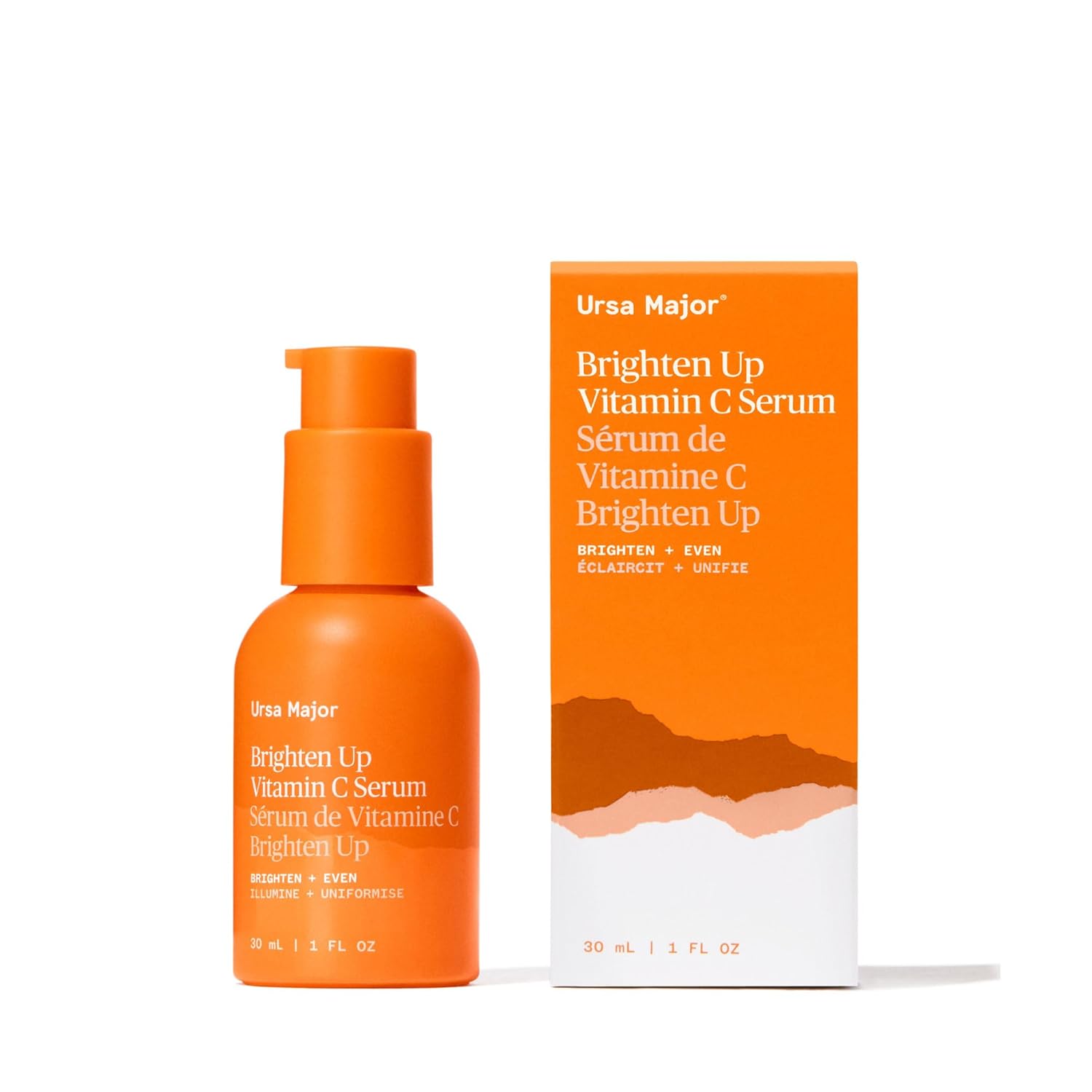Is Corn Good For Weight Loss – Yes, corn can be a surprisingly helpful part of a weight loss plan when consumed in moderation and as part of a balanced diet. Its fiber content promotes fullness, and it offers essential nutrients, making it a smart choice over processed snacks.
Do you ever feel overwhelmed by conflicting advice on what foods to eat, especially when trying to shed a few pounds? You’ve probably seen a million “miracle” diets that promise fast results, only to leave you feeling deprived and eventually back at square one. It’s a common struggle, and the sheer volume of information out there can make even the simplest dietary decisions feel incredibly complicated. But what if I told you that a common, delicious food – corn – could actually be a friend on your weight loss journey?
We’re going to break down exactly how corn fits into a healthy eating plan for weight loss. Get ready to discover how to enjoy this versatile vegetable (yes, it’s technically a vegetable!) without derailing your goals. Let’s uncover the simple truth about corn and your waistline.
Understanding Corn: More Than Just a Side Dish

Before we dive into the “how,” let’s understand “what” we’re talking about. Corn, often enjoyed fresh, frozen, or canned, is a starchy vegetable that’s a staple in many diets worldwide. It’s not just a tasty treat; it’s packed with nutrients that can actually support your health and weight management efforts.
Think about the last time you had corn. Was it on the cob at a summer barbecue, kernels mixed into a salad, or part of a hearty soup? Its versatility is one of its strengths. But when it comes to weight loss, it’s the nutritional profile that truly matters. We need to look beyond just calories and consider the whole package.
Nutritional Powerhouse: What’s Inside a Kernel?
A single cup of cooked corn kernels (about 164 grams) offers a fantastic array of nutrients:
- Calories: Approximately 130-150 calories, which is relatively moderate for a filling food.
- Fiber: Around 3-4 grams. This is a crucial player in weight loss, helping you feel fuller for longer and aiding digestion. According to the American Heart Association, fiber is essential for a healthy diet.
- Protein: About 4-5 grams. Protein also contributes to satiety, helping to reduce overall calorie intake.
- Vitamins: Good source of B vitamins (like thiamin, niacin, and folate), which are vital for energy metabolism. It also provides Vitamin C, an antioxidant.
- Minerals: Contains phosphorus, magnesium, potassium, and small amounts of iron and zinc.
- Antioxidants: Corn, especially yellow corn, contains lutein and zeaxanthin, beneficial for eye health.
Visual Suggestion: An infographic showing the nutritional breakdown of a cup of corn would be highly effective here.
Carbohydrates and Weight Loss: The Nuance
Corn is a carbohydrate, and for a long time, carbohydrates were demonized in weight loss circles. However, not all carbs are created equal. Whole, unprocessed carbohydrate sources like corn offer more than just energy; they provide fiber, vitamins, and minerals. The key is understanding portion sizes and how they fit into your daily total caloric intake.
Consider this: a candy bar might also be a carbohydrate, but it offers little nutritional value and can leave you hungry again soon after. Corn, on the other hand, provides sustained energy and keeps you feeling satisfied, which is a far better strategy for managing hunger and cravings.
The Pros: Why Corn Can Be a Weight Loss Ally
Let’s get straight to the good stuff. When you incorporate corn thoughtfully into your diet, it offers some significant advantages for weight loss:
1. Filling Power of Fiber
As mentioned, corn is a good source of dietary fiber. Fiber is a carbohydrate that your body can’t digest, but it plays a starring role in weight management. Here’s why:
- Increased Satiety: Fiber absorbs water in your digestive tract, adding bulk and slowing down digestion. This makes you feel fuller and more satisfied after eating, reducing the urge to snack between meals.
- Blood Sugar Regulation: Fiber helps to prevent rapid spikes and crashes in blood sugar levels. Stable blood sugar means fewer cravings for sugary or high-carb snacks. The Mayo Clinic emphasizes that dietary fiber is a cornerstone of healthy weight loss.
- Digestive Health: A healthy digestive system is often linked to better overall health and can contribute to a feeling of well-being, which is important for sticking to a weight loss plan.
Sarah, a busy mom of two, noticed a significant difference when she started adding a half-cup of corn to her lunchtime salads. “I used to find myself reaching for chips by 3 PM,” she shared. “Now, with the corn adding that extra fiber, I feel so much more in control and don’t get those intense snack cravings.”
2. Nutrient Density for Overall Health
Weight loss isn’t just about shrinking your waistline; it’s about improving your overall health. Corn provides essential vitamins and minerals that support your body’s functions, including energy production and immune health. When you’re nourishing your body with nutrient-rich foods, you’re less likely to feel fatigued or depleted, which can motivate you to stay active and stick to your healthy eating habits.
3. Low Glycemic Index (Relatively)
Compared to highly processed grains or sugary treats, corn has a moderate glycemic index (GI). The GI measures how quickly a food raises blood sugar levels. Foods with a lower GI are generally better for weight management because they promote a more gradual release of sugar into the bloodstream, preventing the energy crashes and subsequent cravings associated with high-GI foods.
It’s important to note that the GI of corn can vary depending on how it’s prepared. For instance, whole corn on the cob will generally have a lower GI than processed corn flakes or sugary corn syrup.
4. A Delicious Alternative to Unhealthy Snacks
Let’s be honest, sometimes you just want something tasty. When snack time rolls around, a handful of almonds or an apple might be healthier, but what if you’re craving something a little more substantial and flavorful? A small serving of corn can be a much better option than reaching for chips, cookies, or candy bars. It satisfies that urge for something with texture and substance while providing valuable nutrients.
The Cons (and How to Avoid Them): Staying on Track
While corn has many benefits, it’s not a magic bullet. Like any food, how you consume it, and how much, makes all the difference. There are a few potential pitfalls to be aware of:
1. Calorie Density (When Prepared Unwisely)
This is the most common trap! While plain corn is relatively moderate in calories, how it’s often prepared can significantly increase its calorie count. Think about:
- Butter and Salt: Lavishly coating corn on the cob with butter and salt adds a significant amount of calories and sodium.
- Creamed Corn: This preparation method often involves heavy cream, butter, and sugar, turning a healthy vegetable into a calorie bomb.
- High-Fat Toppings: Adding cheese, sour cream, or mayonnaise to corn dishes can quickly escalate the calorie count.
Solution: Opt for healthier cooking methods. Steaming, boiling, or grilling corn on the cob are excellent choices. If you enjoy butter, use a tiny amount of olive oil or a light spray. Season with herbs, spices, lime juice, or a sprinkle of chili powder instead of excessive salt.
2. Portion Control is Key
Even healthy foods can contribute to weight gain if consumed in excess. Because corn is a carbohydrate, overeating large quantities can still lead to a calorie surplus. As the CDC highlights, a calorie deficit is fundamental to weight loss. While corn has fiber and nutrients, it still contains calories.
Solution: Be mindful of your portion sizes. A typical serving is about half to one cup of kernels, or one medium ear of corn. Measure it out, especially if you’re tracking your intake.
3. Processed Corn Products
Not all corn products are created equal. While whole corn kernels are beneficial, highly processed corn products can be loaded with added sugars, unhealthy fats, and sodium, and may lack the fiber of their whole counterparts.
- Corn Syrup: High fructose corn syrup is a common sweetener in processed foods and beverages and is linked to weight gain and metabolic issues.
- Corn Chips/Puffs: These are often fried and heavily salted, offering little nutritional value and being calorie-dense.
- Sugary Cereals: Some breakfast cereals use corn as a base but add significant amounts of sugar.
Solution: Stick to whole, unprocessed forms of corn whenever possible: fresh, frozen (without added sauces), or canned (low-sodium and drained).
How to Include Corn in Your Weight Loss Meal Plan
Now for the practical part! Here are simple, actionable ways to incorporate corn into your daily meals without sabotaging your weight loss goals.
Breakfast Ideas
Think outside the cereal box:
- Corn and Black Bean Omelet: Add a quarter cup of corn and black beans to a veggie-filled omelet. The fiber and protein will keep you full.
- Savory Oats: Cook oatmeal with vegetable broth and stir in kernels of corn, a touch of chili powder, and some chopped cilantro for a savory, filling breakfast.
Lunchtime Boosters
Elevate your midday meal:
- Corn and Quinoa Salad: Combine cooked quinoa, corn kernels, chopped bell peppers, cucumber, lime juice, and a drizzle of olive oil. This is a complete, satisfying meal.
- Hearty Soup Addition: Add half a cup of corn to lentil soup, chicken vegetable soup, or minestrone for added fiber and texture.
- Tuna/Chicken Salad Upgrade: Mix some corn kernels into your usual tuna or chicken salad for added bulk and nutrients.
Dinner Delights
Make your dinners more nourishing:
- Lean Protein Side: Serve grilled chicken or fish with a side of steamed corn on the cob (lightly seasoned) or a small corn salad.
- Stir-fry Staple: Add a handful of corn to your favorite vegetable stir-fry for a touch of sweetness and fiber.
- Veggie Burgers: Many veggie burgers contain corn. Look for options with whole ingredients and moderate sodium.
Snack Smart
Beat the afternoon slump healthily:
- Roasted Corn Kernels: Toss a cup of corn kernels with a tiny bit of olive oil, chili powder, and cumin. Roast at 400°F (200°C) until slightly crispy. A healthier alternative to chips.
- Corn Salsa: Mix corn with diced tomatoes, onions, jalapeños, cilantro, and lime juice. Serve with a few whole-grain crackers or as a topping for lean protein.
Weekly Meal Plan Example (Focusing on Corn Integration)
Here’s a sample of how you might integrate corn over a week, keeping portion sizes and healthy preparations in mind:
| Meal | Monday | Tuesday | Wednesday | Thursday |
|---|---|---|---|---|
| Breakfast | Oatmeal with berries | Scrambled eggs with spinach | Corn and black bean omelet (1/4 cup corn) | Greek yogurt with fruit |
| Lunch | Large salad with grilled chicken | Lentil soup with a side salad | Corn and quinoa salad (1/2 cup corn) | Tuna salad sandwich (whole wheat) |
| Dinner | Baked salmon with roasted vegetables | Lean ground turkey chili (no beans) | Grilled chicken breast with steamed corn (1/2 cup kernels) and broccoli | Vegetable stir-fry with tofu |
| Snack | Apple slices with peanut butter | Handful of almonds | Roasted corn kernels (1/2 cup) | Carrot sticks with hummus |
Visual Suggestion: This table is excellent as-is for demonstrating meal integration. Consider a larger table for a full 7-day plan if space allows.
Hydration: The Unsung Hero
Remember that water is crucial for digestion, metabolism, and feeling full. Make sure to drink plenty of water throughout the day, especially when increasing your fiber intake with foods like corn. The National Institute of Diabetes and Digestive and Kidney Diseases (NIDDK) stresses the importance of adequate fluid intake when consuming fiber.
Real People, Real Results
It’s easy to get lost in the “what ifs,” but seeing how corn can fit into real lives is inspiring. Take Mark, for example. He’s a software engineer who spends most of his day at a desk. He’d tried cutting out carbs entirely, which left him feeling lethargic and irritable. When he consulted a nutritionist, she suggested a balanced approach that included moderate amounts of whole carbs.
“I learned that I could actually enjoy corn again,” Mark says. “Instead of a giant bowl of pasta for dinner, I’d have grilled chicken with a modest portion of corn and a large salad. That half-cup of corn made the meal feel so much more satisfying, and I wasn’t ravenous an hour later. Over three months, I lost 12 pounds, and I feel more energized than I have in years.”
Mark’s story highlights that it’s not about excluding foods, but about making smart choices and enjoying them in appropriate ways as part of a larger, balanced strategy.
Frequently Asked Questions (FAQs)
Can I eat corn every day if I’m trying to lose weight?
Yes, you can include corn daily in moderation as part of a balanced diet. Focus on portion control and healthy preparation methods to ensure it fits within your calorie goals and doesn’t replace more nutrient-dense foods.
Is canned corn as good as fresh corn for weight loss?
Fresh or frozen corn is generally preferred, as canned corn can sometimes have added sodium or preservatives. If you choose canned, opt for low-sodium varieties and drain them well before use.
Will eating corn make me gain weight?
Any food can contribute to weight gain if consumed in excess of your daily calorie needs. When eaten in appropriate portion sizes and prepared healthily, corn’s fiber content can actually support weight loss by promoting fullness.



